Revealed: The passion project firing up former MP Kate Ellis
“Other states are improving and ... every year this trend continues it gets harder to turn around.” An alarming statistic has prompted former federal MP Kate Ellis to embark on a new fight.
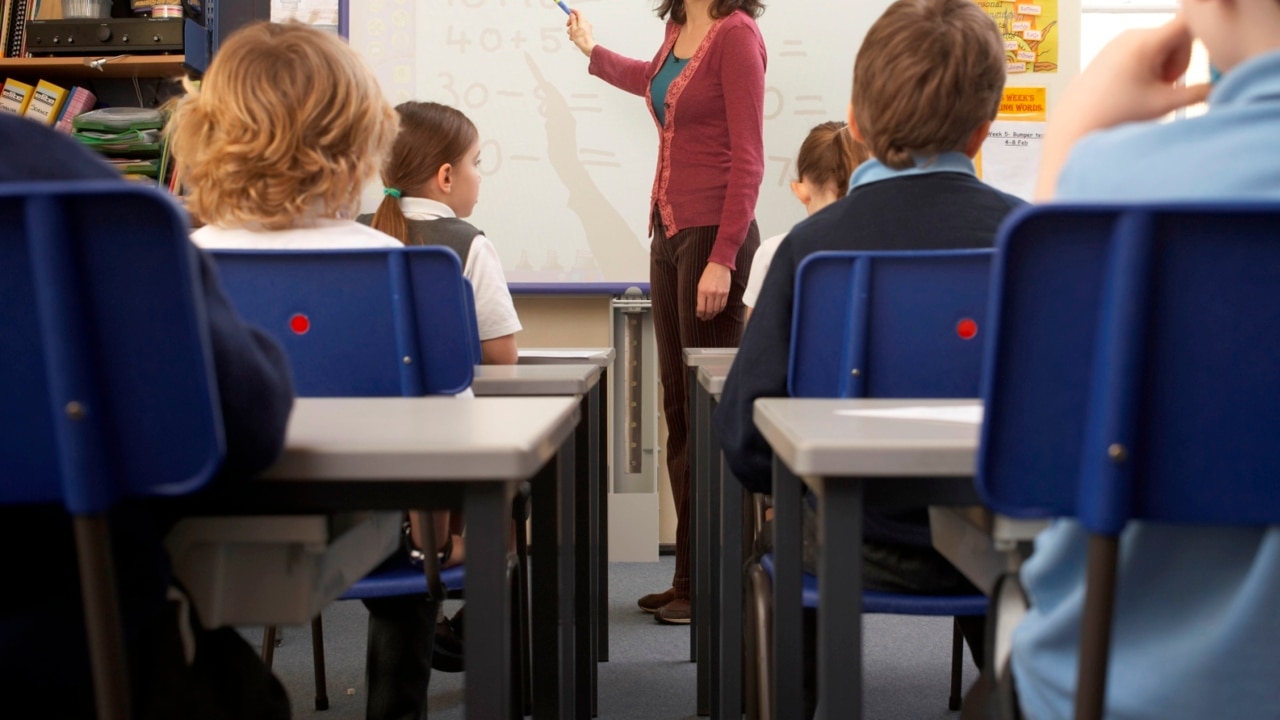
SA Weekend
Don't miss out on the headlines from SA Weekend. Followed categories will be added to My News.
Former high profile federal MP Kate Ellis is calling for public donations after a literacy organisation she acts as an ambassador for had vital government funding cut.
Raising Literacy Australia, a not-for-profit which supports early childhood development by helping more kids to read from a young age, has lost $170,000 of Education Department funding for its Read to Me program.
The program provides children in foster care with personalised book libraries.
Ms Ellis said Raising Literacy Australia needed donations to stop the cost of the program from eating into other valuable resources.
“This is something tangible that people, if they donate, can know this program will continue for these children ... this is what people’s donations go towards supporting,” she said.
“This is the one we really need to keep afloat.”
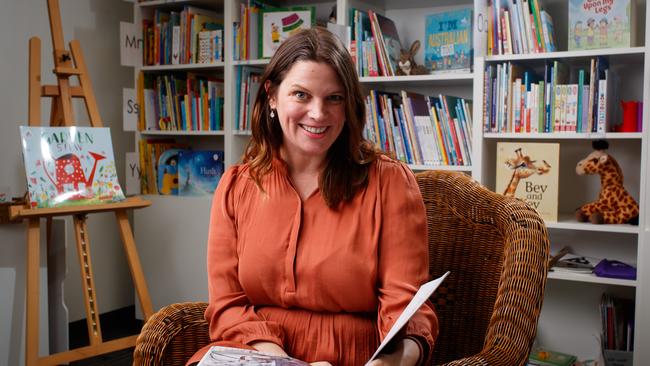
Since 2015 the program has provided more than 100,000 books to vulnerable children in care.
Raising Literacy Australia chief executive Elizabeth Davis described the program as the “cornerstone” of the organisation’s work.
She also said the organisation already had a budget shortfall of around $150,000 to be able to expand its other initiatives interstate.
“We are here to support the most disadvantaged in our community and in the area of literacy,” she said.
“It (the funding cut) will diminish the opportunity we wish to provide.”
However, Ms Davis said she is committed to continuing the program despite the blow.
“We will not allow this program to falter,” she said.
“We will eat into all our reserves to ensure we maintain this work.
“This is so critical that we will make sure it works, come what may.”
Ms Ellis, who held the portfolios of early childhood and childcare during her time as an MP, became an ambassador for Raising Literacy Australia following her retirement from politics in 2019.
She said the alarming literacy rates of Australian adults motivated her to work with the organisation.
According to the Organisation for Economic Cooperation and Development (OECD), 44 per cent of Australian adults read at the same level as five to nine-year-olds, while only 15 per cent read at the highest level.
Last year Ms Ellis was appointed to lead the Early Years Taskforce, a collaboration between Raising Literacy Australia, the state government and several South Australian non-government organisations, which focuses on the development of children aged three and under.
Australian Early Development Census data showed almost 25 per cent of South Australian children started school behind the national average in the five measured development areas of school-based language and cognitive skills, communication skills and general knowledge, emotional maturity, social competence and physical health and wellbeing.

Early start sews seeds for literacy
From the outside, Raising Literacy Australia’s headquarters is indistinguishable from the other industrial facades.
Tucked away in a laneway in leafy, affluent Norwood, the outside is clad in silver corrugated iron, the only visible entrance a diamond plate-clad door.
Save for the windows giving a glimpse inside and the few small signs with the organisation’s teal blue logo on them, you could be forgiven for missing the place altogether.
Behind that steel-plated door, though, is a very, very different story.
“It’s nice for me because it’s my passion,” says Kate Ellis amid a backdrop filled with the colours of children’s book covers – a small play area and a multi-coloured Duplo castle.
“I was one of those kids who used to sneak the torch under their blanket so once the lights had been turned off, you could keep reading your books.”
The former MP for Adelaide and federal sports and youth minister is clearly comfortable in these surrounds, as she checks on four-year-old son Charlie, who is home from preschool unwell, but happy to be lying on the couch in his “favourite place”.
Ellis isn’t here to talk politics but to discuss her role as an ambassador for Raising Literacy Australia – a not-for-profit group leading the way in early childhood literacy.
“I don’t think we as a general community have fully grasped (that) 90 per cent of your brain development has occurred by the time you turn five,” Ellis says. “What we see is that when children are behind at five it can be really, really hard to ever catch up.”
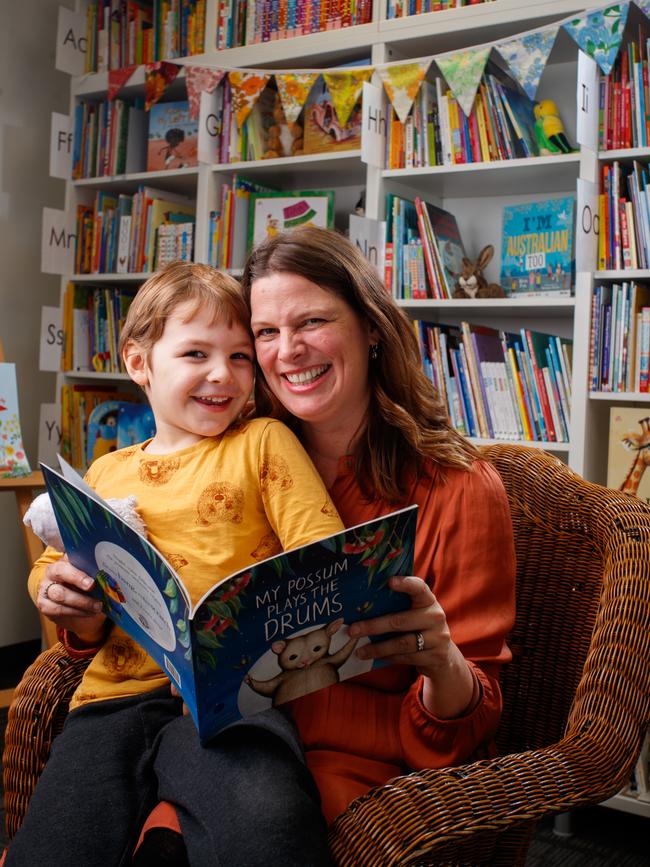
Almost half of people (44 per cent) in Australia aged 15 to 74 have literacy skills graded at Level 1 or 2 on the scale used by the Programme for the International Assessment of Adult Competencies. That’s the level, Ellis says, expected for five- to nine-year-olds in Australia. Only 15 per cent of Australians read at the highest levels – four and five.
“The impact that that has on lives,” she trails off. And the result is clear.
According to Adult Literacy Australia, a national not-for-profit for adult and community education, one in seven Australians’ literacy skills are so low they struggle with everyday tasks and one in three Australians have literacy levels so low they struggle to find and keep work.
Of those numbers, people aged over 45 were the worst affected, a trend Ellis says can be lessened by identifying learning difficulties early in life.
“Of course you can turn around adult literacy issues but the easiest way to do it is to invest from the start,” she says.
“We know that if we don’t help children in the early years, the effects of that will be felt throughout their whole lifetime in a number of ways, whether it’s health outcomes, job prospects, likelihood to be caught up in the juvenile justice system. All of this comes back and literacy is a really big indicator.”
The shortfalls in the sector are something she has seen first-hand during her political career representing her home state of South Australia, where NAPLAN – the countrywide tests given to all students in years 3, 5, 7 and 9 – scores have lagged behind the rest of Australia year on year.
The 2021 test results show the state is below the national average for numeracy, reading, writing, spelling and grammar, all but one category: Year 9 writing.
But it’s where this stems from that alarms Ellis even more.
The 2021 Australian Early Development Census (AEDC), which collected data from 305,000 children aged zero to five, identified the need for a stronger focus on early childhood development in South Australia particularly.
The census revealed that almost a quarter of children in the state start school developmentally vulnerable in one or more of the five measurable “domains”, or key development areas, of school-based language and cognitive skills, communication skills and general knowledge, emotional maturity, social competence and physical health and wellbeing.
“We’re going against the trend,” Ellis says.
“The other states are improving and ... every year this trend continues it gets harder to turn around.”
That need for focus is exactly what brought Ellis into her role with Raising Literacy Australia.
Ellis’s support brings with it political clout to complement other high-profile ambassadors, including Channel 7 news presenter Rosanna Mangiarelli and Australian Olympic marathon runner Jessica Stenson (nee Trengove).
Though it’s obvious she’s not here to make up the numbers. Since she left the political bubble after the 2019 federal election, Ellis has still retained something of a public profile.
Last year she published a book, Sex, Lies and Question Time, which lifted the lid on the rumours that spread through parliament about her private life during her time as an MP.
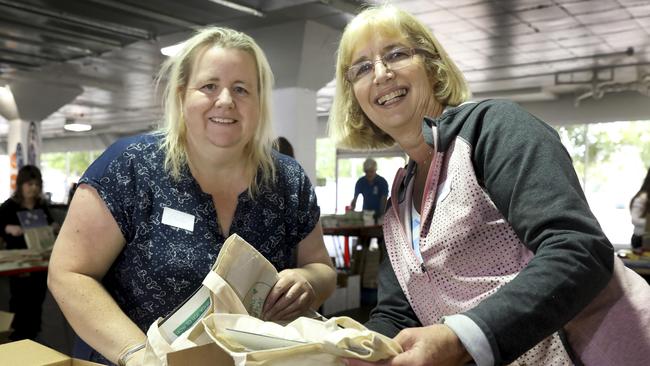
She has also remained a fierce supporter of women in parliament, telling 9News’s election panel after a record number of women were sworn into parliament last month that more of a focus on the issues affecting women was still needed.
This work is, however, at the top of her list.
“Early childhood and making the most out of early childhood has always been my passion,” Ellis says.
Now she is doing all she can to help Raising Literacy Australia raise more awareness, and with any luck, much-needed funds.
Raising Literacy Australia was founded in 2006 with one aim, enriching children’s lives through literacy.
Since then the not-for-profit has donated more than two million books to Australian families.
It has partnered with hundreds of preschools to deliver learning age-appropriate “book bags”, which go to every single student in an approved government preschool.
As well as partnering with preschools, Raising Literacy Australia provides new parents with their own “book bag” to plant the developmental seed in their child early.
The packs are delivered by CaFHS (Child and Family Health Service) nurses as both a learning resource for the newborn, and an icebreaker between nurse and mum.
“They don’t want to take it just ‘because’,” says Raising Literacy Australia chief executive Elizabeth Davis as she thumbs through the bright pages of Look, Baby!, a picture book with circular cut-outs in the pages designed to help parents teach their children how to look around them.
“They actually use this to interact with the parent … through books they can do that. And it’s that specialness that you can look through a window and you can see that.”
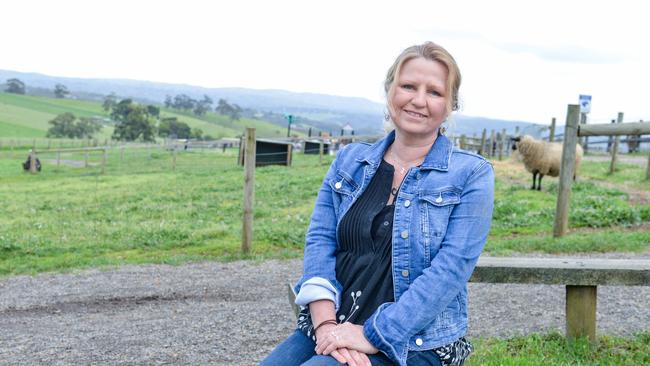
Just how special books can be is never lost on children’s illustrator Mandy Foot.
Through her drawing she has brought life to children’s books since 2008, including a number of titles for Little Book Press, Raising Literacy Australia’s own publishing arm.
She is also an ambassador for Raising Literacy Australia and a strong believer in their work.
“To be able to get those stories into the hands of every child, no matter their situation, is phenomenal, really,” she says.
“Having a book available to babies and children right from an early age just improves their literacy rate 10-fold … it’s a great thing to be a part of, to know that we’re helping to get books into the hands of kids to help them start learning before they even get to school.”
Her latest work for Little Book Press, Warna-Manda Baby Earth Walk, which teaches children to understand and connect to the world around them, is a story about a young Indigenous girl, Allurru, finding her way home.
“Warna-Manda Baby, the earth is part of you,” a page of the book reads.
The inspiration for the story came from the culture of Foot’s co-author Susan Betts, a Wirangu woman whose heritage comes from South Australia’s west coast.
The book also features a page of Wirangu to English translations as an educational tool for both Indigenous and non-Indigenous children.
“Language is important no matter where you come from,” Foot says.
“We wanted to have the language in the back so that we could teach children from other communities as well, so that we can spread the language and it’s not lost.
“To be able to collaborate with Susan Betts on that book in order to hopefully get books into Indigenous communities and into those children’s hands is just really, really important, so they can have access to stories and also have access to stories they can resonate with.
“Because if they can find a connection to something in a story, they’re more likely to read it, and then read it again and then that’s when the learning begins and when their passion for literacy and learning starts.”
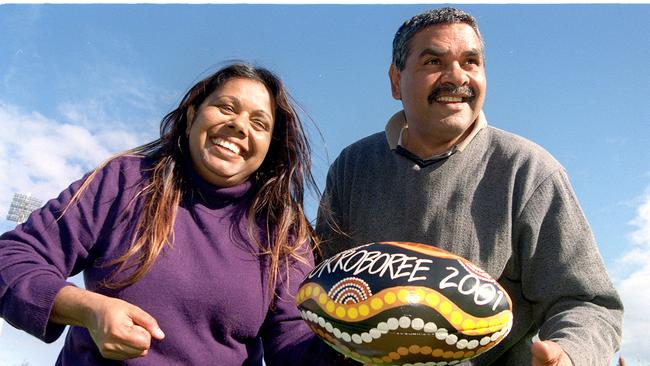
Foot and Betts also saw the importance of having an Indigenous protagonist – which was loosely based on Betts’ niece – with whom Aboriginal children could resonate.
“We need these kinds of stories to be able to get the books in their hands because that gives them a connection to those books and without that connection it’s very difficult,” Foot says.
“So to create stories they can resonate with … it just makes it so much more worthwhile.”
Exploring these themes is very much a deliberate choice for Raising Literacy Australia, with the goal now to get books like this into as many Indigenous communities as possible to combat lower levels of literacy.
And the statistics in that area speak for themselves.
The 2020 Closing The Gap report showed that in 2018 one in four Indigenous students in year 5, 7 and 9, and one in four Indigenous students in year 3, were below the national minimum standard in reading.
According to the Literacy for Life Foundation, an Aboriginal-led not-for-profit targeting illiteracy in remote communities, as many as 70 per cent of Indigenous adults in remote areas have low literacy skills.
“We certainly are looking at the Aboriginal area,” Davis says.
“Especially in the APY Lands, how else we can get more buy-in there, and that’s a difficult one. It’s going to take time but we’re certainly talking to people.”
Despite the number of books Raising Literacy Australia has put into the hands of children over the past decade and a half, almost all of the organisation’s work is still done in-house.
Save for the printing of books published through Little Book Press, which is done in China due to the high cost of printing domestically, little else is outsourced.
But even with cost-saving measures in place, the organisation struggles to deliver programs like the Book Gifting initiative in preschools to the level it wants. The goal is to take Raising Literacy Australia’s programs Australia-wide, but Davis says the organisation’s resources are spread too thin.
“There’s not much fat in it by the time we finish,” Davis says.
She is grateful for the government funding, corporate partnerships and philanthropic donations Raising Literacy Australia receives, but unfortunately, she says, it’s a matter of having to “cut the cloth to fit”.
She says the organisation has a funding shortfall of about $150,000 a year to be able to expand its programs interstate.

Davis describes Raising Literacy Australia’swork with vulnerable and at-risk children as the “cornerstone” of the organisation.
Through the Read to Me initiative, the organisation works closely with several government departments to identify children who need support and provide personalised libraries for kids across the state, many of whom are in foster care.
The books selected come under extra scrutiny to ensure they reflect the individual living situation of every child, which is a task in itself.
“We’re talking thousands of children every year in foster care and kinship care,” Davis says.
The onus is on trying to provide children with books of their own.
Ellis says until recently she underestimated the significance of this, rather than having them borrowed from a library.
“That’s really special for some children,” she says.
“There’s a pride and that sense of ownership. And particularly for children that don’t have much, there’s this real pride about, ‘These are mine and I’m going to look after them’.”
For Davis there are countless stories that speak to the impact of Raising Literacy Australia’s work, but one foster parent’s comments in particular have stuck with her:
“She said, ‘I’ve just got a new foster child, aged three, she’s turned up at my door with the clothes she’s standing in and nothing else,” she says.
“Today a book pack arrived. This is the only thing she possesses’.”
Both Ellis and Davis agree the initiative is the most important work Raising Literacy Australia does, without question.
Since 2015 it has provided more than 100,000 books to kids in need.
But a few days after I speak to Ellis and Davis at the Raising Literacy Australia office, they tell me the Education Department funding for the program – around $170,000 a year – has been cut.
For Davis, the decision is nothing short of devastating.
“We are here to support the most disadvantaged in our community and in the area of literacy,” she says.
“It (the funding cut) will diminish the opportunity we wish to provide.”
Despite the bad news, she is adamant the program will continue, even if other initiatives will have less resources as a result.
“We will not allow this program to falter,” she says. “We will eat into all our reserves to ensure we maintain this work.
“This is so critical that we will make sure it works, come what may.”
“This is the one we really need to keep afloat,” Ellis adds.
“This is something tangible that people, if they donate, can know this program will continue for these children ... this is what people’s donations go towards supporting.”
Longer term, Davis, who has been at the helm of Raising Literacy Australia for just four months, wants the organisation in a more visible location than its humble laneway.
She wants to build a “literacy hub” of sorts, complete with practical services to enhance the development of young children.
“What does that look like?” she asks rhetorically.
“We find a place … and we work in collaboration with perhaps a coffee shop or a speech pathologist, we set up an area for the distribution of all our books, we have areas for children to come in and have reading time, areas for parents to come in and chat.
“It’s got to be a coffee shop because all parents want a coffee,” she adds with a laugh.
She is quick to admit that scenario is a “dream” at the moment.
And she also knows she has much more important priorities and a long way to go to get childhood literacy to where it needs to be.

As does Ellis, who has been appointed to lead the state government backed Early Years Taskforce focusing on increasing the development of zero- to three-year-olds.
Partners of the taskforce, which was announced last year and will begin its work this year, include the Department for Education, the Smith Family and Playgroup SA.
The goal is to bring all the organisations dealing with young children, both government and non-government, together to bring a uniform approach to early childhood development.
“I’m really lucky that I get to chair that taskforce,” Ellis says.
“It means you get to see that there are so many remarkable people doing remarkable things and if we can bring that all together and collaborate a bit more, then hopefully we can get some amazing results.
“We know that in South Australia there hasn’t been a consistent message and that parents are receiving all sorts of different pieces of advice and seeing different campaigns but none of it is necessarily consistent about what your child needs and how you can best help them in those early years, and that’s what we’ll be looking to do.”
Charlie beams from the couch when Ellis mentions that she sees first-hand in her own home the difference Raising Literacy Australia’s work makes. That cheeky smile is also part of why she does it.
“It’s a really cool thing that you get to shape your child’s life,” says Ellis, who jokes that the only reading she did to her unborn children was government policy.
“And this is kind of about expanding that; you can help shape another child’s life who might not otherwise get the opportunity.”
As the public face of Raising Literacy Australia, Ellis knows just as well the work that lies ahead but appears as motivated about this cause as she was her political ideals.
“I think giving every child the greatest opportunity for success is something we should all be focused on,” she says.
“I think this is the most important cause.”




